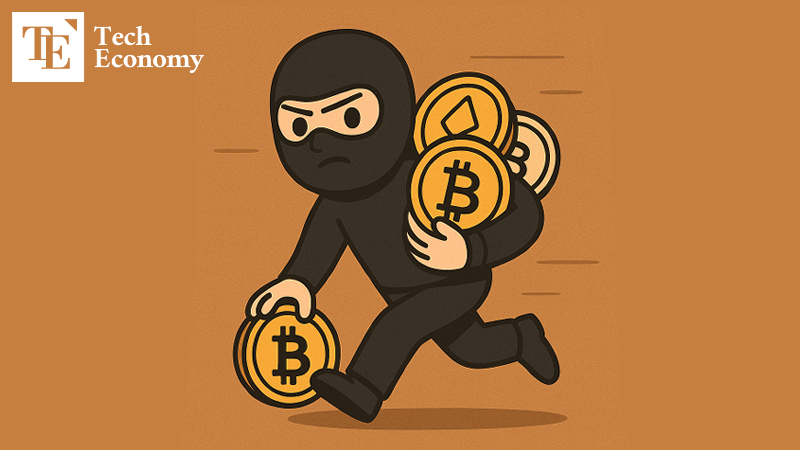How long has it been since the Bybit incident?" U.S. Coinbase hacked, customer information leaked
Input
Changed
Coinbase demanded $20 million by hackers Similar incident occurs just three months after the Bybit hacking case Hacking incidents are critical blows to the cryptocurrency market, which has rapidly grown on the basis of 'trust'

It has been confirmed that Coinbase, the largest cryptocurrency exchange in the United States, has suffered a hacking attack. This marks a similar incident occurring just three months after the large-scale hack of Bybit in February.
Coinbase Crumbles Under Hacking Attack
On the 15th (local time), major foreign media outlets such as Bloomberg reported that Coinbase informed U.S. regulatory authorities that its systems had been hacked and customer data had been leaked. According to the report, the hacker informed the company on the 11th that they had obtained information on customer accounts and demanded $20 million (approximately 28 billion KRW) worth of Bitcoin in exchange for not releasing the stolen data.
The leaked information includes customers’ names, mailing and email addresses, phone numbers, the last four digits of their Social Security Numbers (SSNs), account balances, and transaction histories. Additionally, masked bank account numbers, certain bank identifiers, and government-issued ID data such as driver’s licenses and passports were also stolen. Coinbase is expected to incur a cost of approximately $180 million to $400 million (roughly 251.7 billion to 559.4 billion KRW) to recover from the hack and compensate customers.
Coinbase revealed that the hacker gained the information by bribing contract workers or support staff outside the U.S. who had internal access to its systems. The company added, “Our systems detected malicious activity over the past few months,” and stated that it had informed affected customers to prevent misuse of the stolen information.

Cumulative Hacking Damage in the Crypto Market
Hacking incidents targeting cryptocurrency exchanges occur frequently. In 2018, Coincheck suffered losses of $34 million (approx. 43.7 billion KRW), and last year, DMM Bitcoin lost $300 million (approx. 417 billion KRW) in a hack. In February of this year, Bybit — a major exchange with an average daily trading volume of over $36 billion — was hacked, resulting in the theft of $1.46 billion (approx. 2.1 trillion KRW) worth of cryptocurrencies.
According to blockchain analytics firm Nansen, the hacked funds from Bybit consisted of Ethereum and Ethereum derivatives. The Ethereum was transferred to a single wallet, then distributed to more than 40 other wallets. The derivatives were converted to Ethereum and then split into over 10 wallets, each receiving $27 million.
The attack is suspected to have been carried out by North Korea. Fireblocks, a blockchain security company that assisted with Bybit’s investigation, stated, “This hack appears similar to previous attacks on Indian crypto exchange WazirX and lending protocol Radiant Capital,” and added, “Both of those incidents were attributed to North Korea.” North Korean hackers were previously identified as the culprits behind the thefts of $234.9 million (approx. 326.9 billion KRW) from WazirX and $50 million (approx. 70 billion KRW) from Radiant Capital.
"Investor Confidence Is Collapsing" — Growing Concern
The Bybit incident sent shockwaves through the cryptocurrency market. According to crypto data provider Alternative, immediately after the Bybit hack, the Bitcoin Fear & Greed Index dropped to 25, entering the “Extreme Fear” range. This was the first time in about six months — since September 7 of last year — that the index fell to such a low. The Fear & Greed Index quantifies investor sentiment in the crypto market on a scale from 0 to 100; lower values indicate more negative sentiment. This shows how a single incident can severely shake market sentiment.
A similar trend is being observed in the aftermath of the Coinbase hack. According to global cryptocurrency tracking site CoinMarketCap, at 8:40 PM on the 15th, the price of Ethereum, the second-largest cryptocurrency by market cap, had dropped 2.61% over the past 24 hours to $2,559.65. Ripple fell 6.47% to $2.39, and Solana declined 3.24% to $171.73. Following news of the Coinbase breach, major altcoins (cryptocurrencies other than Bitcoin) collectively experienced declines.
Market observers warn that as hacking incidents at exchanges continue to pile up, investor confidence in cryptocurrencies will inevitably deteriorate. One industry insider noted, “The crypto market has grown rapidly by emphasizing the security of blockchain technology,” and added, “Frequent exchange hacks essentially undermine the very foundation of that growth.” He further stated, “The crypto market already operates outside traditional regulatory frameworks, so if investor trust bottoms out too, recovery will be extremely difficult.”





















